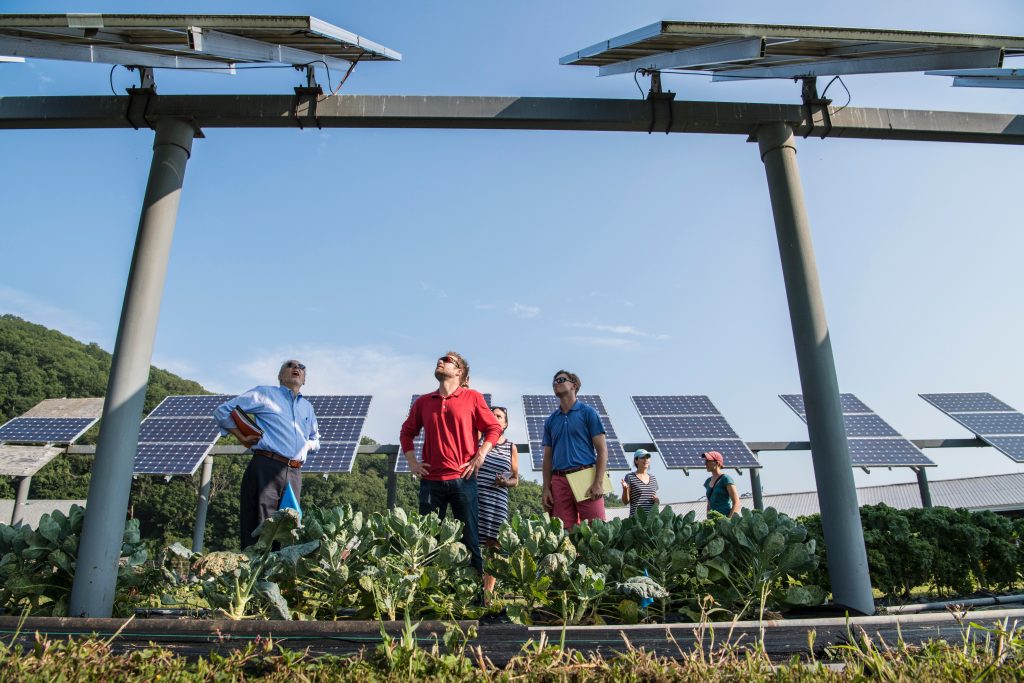What is the Future for Green Jobs?
April 5, 2021In the global effort to economically recover from the Coronavirus pandemic, government leaders worldwide are discussing and debating the transition towards green economies to curb the negative effects of the current climate crisis in the process. Can Israel follow suit?
In late January 2021, US President Joe Biden signed a number of executive orders supporting the fight against climate change, including halting new oil and gas drilling on federal lands and cutting fossil fuel subsidies. President Biden has also promised to create new jobs supporting green economic growth and policies, contrary to the anti-environmental policies of his Republican predecessor Donald Trump. If successfully executed, President Biden’s plan could expand American employment within the clean energy sector from 3 million jobs to 10 million jobs.
The new president has unveiled a government policy that puts climate change at the center of U.S. security and foreign policy as well as resilient infrastructure planning and management, which he says will provide millions of decent jobs.
Many opponents, however, have argued that halting large industry-polluting operations would cause many Americans employed in those positions to lose their jobs. Unemployment has always been a major topic within American discourse. However, greater emphasis has been placed on unemployment concerns due to the ongoing pandemic and the new president’s assumption of office.
Despite this, it seems as though President Biden has remained determined to implement a new future for American jobs, particularly with regard to “green jobs” in the renewable energy sector. Investing in this vision, he believes, will not only create a healthier environment for our children, but also generate a robust and sustainable economy for a new and developing market.

Taking Advantage of a Global Crisis
It has been over a year since the COVID-19 pandemic began, yet there are still many new discoveries scientists and experts are learning almost every day about its spread and transmissibility. However, it is more than clear it has heavily impacted the state of our economy, society, and nearly every aspect of our lives.
According to the OECD’s Employment Outlook 2020 Report, Israel experienced the second greatest rate of unemployment due to the coronavirus pandemic compared to other developed countries, such as the United States. The report also predicted that the unemployment rate in the country would rise in the event of a second wave (that indeed took place during late summer and autumn holiday season). Data reported by the Bank of Israel (accurate as of August) showed that the unemployment rate was around 12%, which confirmed this prediction.
Many organizations across the globe see the coronavirus pandemic as an opportunity. Although they perceive the ongoing global crisis as a catastrophe, these organizations have also observed changes in patterns of resource consumption. Thus, they seek to take advantage of this otherwise grim situation.
Indeed, the World Economic Forum’s 2020 report on the Future of Nature and Business identified the transition to a green economy as being capable of generating $10 trillion in annual business opportunities that could lead to the creation of 395 million jobs worldwide by 2030.
A good example of these two factors is the Australian Government’s decision to create more than 10,000 new jobs related to waste recycling in the country, thereby diverting over 10 million metric tons of waste from landfill sites. The idea behind this initiative is to not only change the country’s waste and recycling industry, but its methods of dealing with resource waste as well. As part of this endeavor, the Australian Government announced an investment of 190 million Australian dollars (equivalent to USD $130 million) in establishing the Recycling Modernization Fund (RMF).
Can Israel take advantage of the economic vacuum created by the pandemic like other countries and create more green jobs?
“Can it? Of course. Will it? That’s the million-dollar question,” says Ori Sharon, Deputy Director-General of the Israeli Society of Ecology and Environmental Sciences and lecturer in Law and Environmental Policy in the Faculty of Law at Bar-Ilan University.
“Because Israel doesn’t have a functioning government, Israel does not have a budget, so we basically can’t do anything. If you want to create jobs, you have to invest in infrastructure, whether it’s for recycling, renewable energy, mass transportation… All of these require a lot of money, and most of the money will either come from the government national budget or from loans,” Sharon explains.
“From an economic standpoint, Israel is very well situated to establish and take on such measures that will increase the number of green jobs in the economy and help rescue us from the financial crisis that was created because of COVID. But for now, I don’t see any feasibility because of the current political crisis,” says Sharon.
Tackling Three Problems at Once

Investing in renewable energy sources and creating a green labor market during this global pandemic can help us tackle three problems at once: mitigating the climate crisis, increasing the resilience of our infrastructures and security, and creating additional jobs in the labor market.
For example, over 3 million of Italy’s workers (13.4% of the workforce) are already employed in green jobs. These include jobs that are in high demand for workers in Italy, ranging from cooks that work with local, organic, and raw materials; engineers and lawyers specializing in renewable energy; and green building and planning. Companies provide incentives to those who bring green solutions that help optimize the company’s productivity and profits, and there is an increasing demand for experts who know and understand procedures and laws related to renewable energy.
Europe now produces around 30% of the world’s photovoltaic energy, led by Germany who employs about 40,000 solar-energy technicians. There is always a demand for more technicians in the field.
Israel, on the other hand, is still in the process of building a green job market. “We have a very interesting high-tech and green-tech industry, but all of high-tech is around 10% of our economy, so green high tech takes even a lower portion of it,” Sharon explains.
“We don’t have many green jobs. We have a lot of sun here so there is a lot of potential to invest in solar energy, but there are regulatory hurdles,” Sharon continues.
“Urban areas are the best areas to install solar energy. Currently, however, most of the solar energy development projects are taking place outside of the cities in undeveloped lands, agricultural lands, and open areas, which can be harmful to biodiversity and the environment.”
“This is because it’s very hard to develop inside the cities,” Sharon continues. “It requires the consent of the people living in the buildings, and it’s hard to get building permits. The government has done some things to ease the process to make urban areas more appealing to developers, but they haven’t done enough. There is also a question about lack of finance as it’s hard for firms, banks, and investment firms in Israel to invest in renewable energies. All these things are solvable, but we need the government to intervene and solve them,” says Sharon.
Thinking Long-Term

Some argue for the short-term economic benefits of maintaining business-as-usual and believe that we should continue to invest in the fossil fuel-based energy industry at least until mass-produced technological improvements and serious investments can save us from the climate crisis. Nevertheless, the demand for fossil fuel energy is decreasing due to both green governance and diverse technological innovation––a move that is expected to hurt top fossil fuel energy exporters in the US, Russia, and Canada as early as 2035.
According to a Dutch study examining investments in the oil industry, if the US promotes new technologies and reduces the use of fossil fuels, it will be able to create jobs and offset the loss of revenue from oil exports. Conversely, if the US continues to invest in the shrinking oil industry, it will still lose revenue from that industry, miss out on developing the new job market, and become more dependent on oil imports in favor of an outdated local industry.
In terms of America’s new push to generate a massive wave of green job creation, Ori Sharon believes this will have a positive but eventual influence on Israel’s future economic landscape. “I think that everything that happens in America makes an aliyah to Israel, but it usually takes a decade. I hope this time it will take less.”
“Former President Trump thought climate change was a hoax, and so he did many things that were not environmentally conscious, like pulling the US out of the Paris Agreement. Being a close ally of the US, therefore, made it hard for Israeli leaders to take environmental and climate action,” he explained.
As the push for government-backed green policies and initiatives begin to pick up more momentum, experts like Sharon feel optimistic for the influence it will likely have on Israel.
“I believe it will be easier to take action and that this will encourage Israelis to think about the environment and climate issues in a more committed way. If the US is committed to environmental causes and climate action and it creates opportunities for cooperation, Israel will always be happy to create more bridges in this field with its ally.”
This ZAVIT Article was also published in The Jerusalem Post on 3 Apr. 2021







